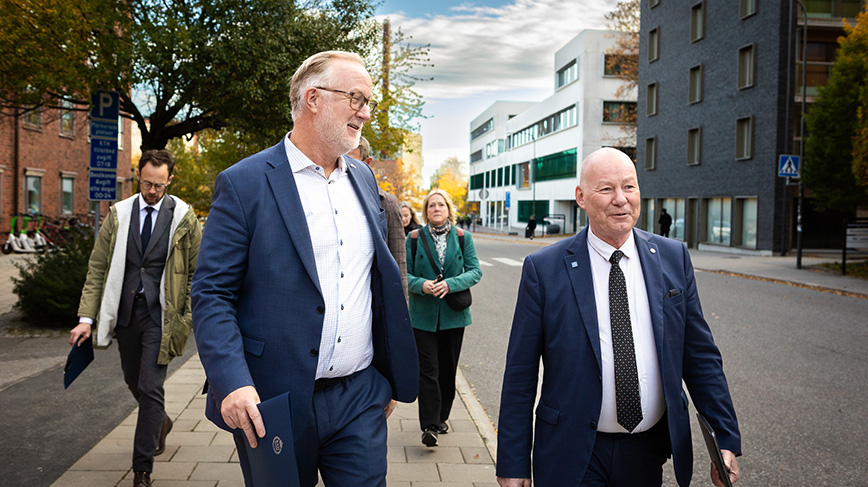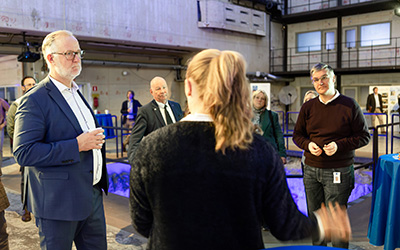Minister underlines KTH's role in green transition

"KTH is the pride of Sweden, with impressive activities and a clear focus on the future."
This is what Education Minister Johan Pehrson said during a visit to KTH, when he got a taste of KTH's energy research.
The Minister of Education, who was on his first visit to KTH, was first given a brief overview of KTH, its vision and reform agenda. Anders Söderholm, President of KTH, presented various challenges and areas where KTH can contribute in many ways.
"Universities usually talk about what they are good at, we talk about what we are good at," said Mr Söderholm, outlining KTH's vision and challenges.
He also mentioned some critical technology areas such as AI, energy and semiconductors as examples of areas where KTH can contribute to strengthening the EU's competitiveness, among others.
The Minister of Education received a briefing on CO2 capture and decarbonisation of heavy industry from researchers Malin Dufour and Christophe Duwig.

Research funding and broadening recruitment were other issues raised during the discussion.
"Long-term and robust research funding is our wet dream," Söderholm said.
The Minister of Education, who described himself as "new to the job", was then taken into the reactor hall. There, a total of eleven researchers at four different stations gave short presentations on their respective research in the field of energy technology. Decarbonisation, CO2 capture, battery recycling, urban energy and industrial electrification were the topics Johan Pehrson got a taste of.
"Exciting, I could really use a course at KTH," he said after walking around the ship.
How do you see KTH's role in the green transition?
"KTH has a big role to play with its exciting combination of top research and entrepreneurship. KTH has a number of top researchers who can contribute, for example, now that we are seeing the return of nuclear power on the global stage. As a research nation, Sweden needs to show where it stands in the competition."
What are the three most important issues in higher education today?
" Quality is paramount, as well as throughput and building our educational culture from an early age, for example in mathematics, " Pehrson said.
Text: Jill Klackenberg
Photo: Johan Marklund
